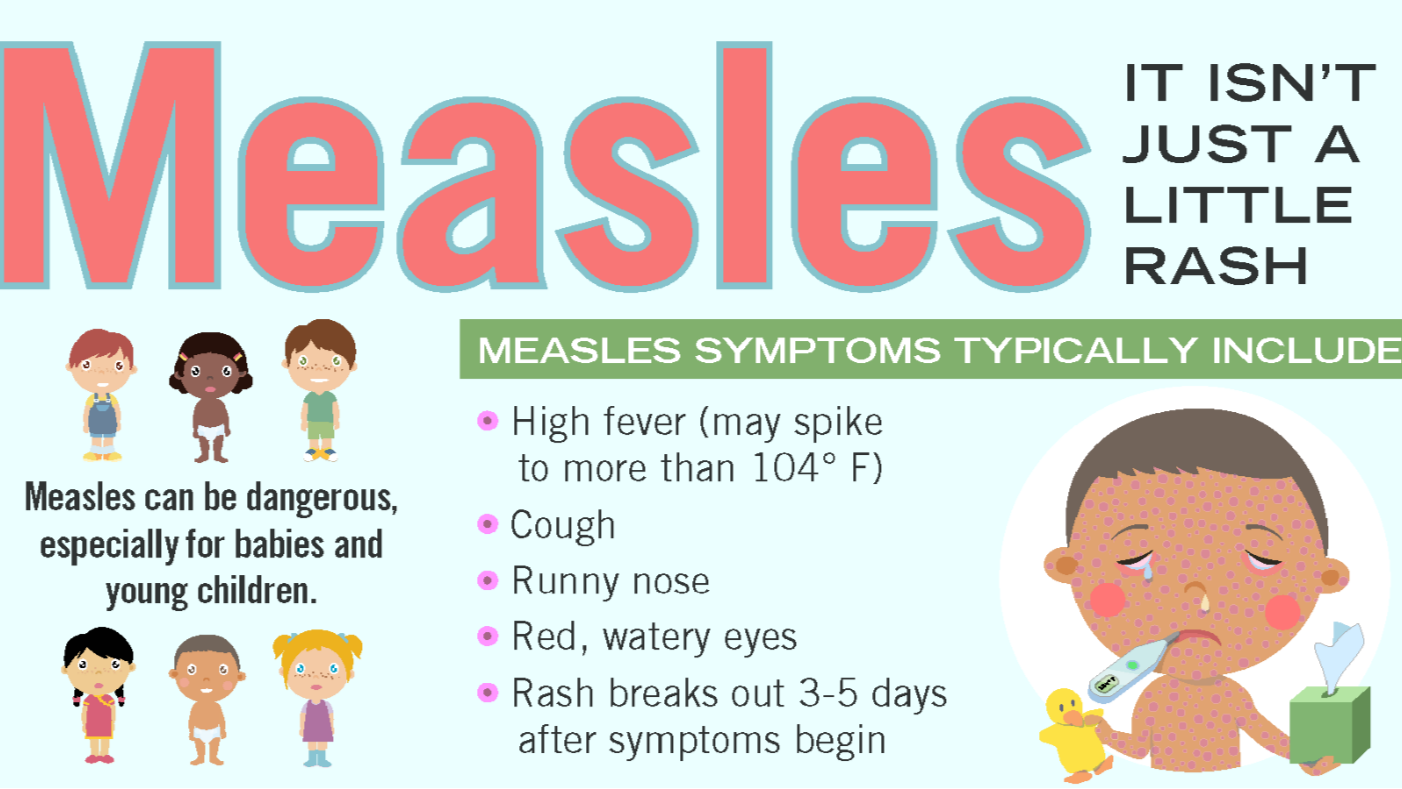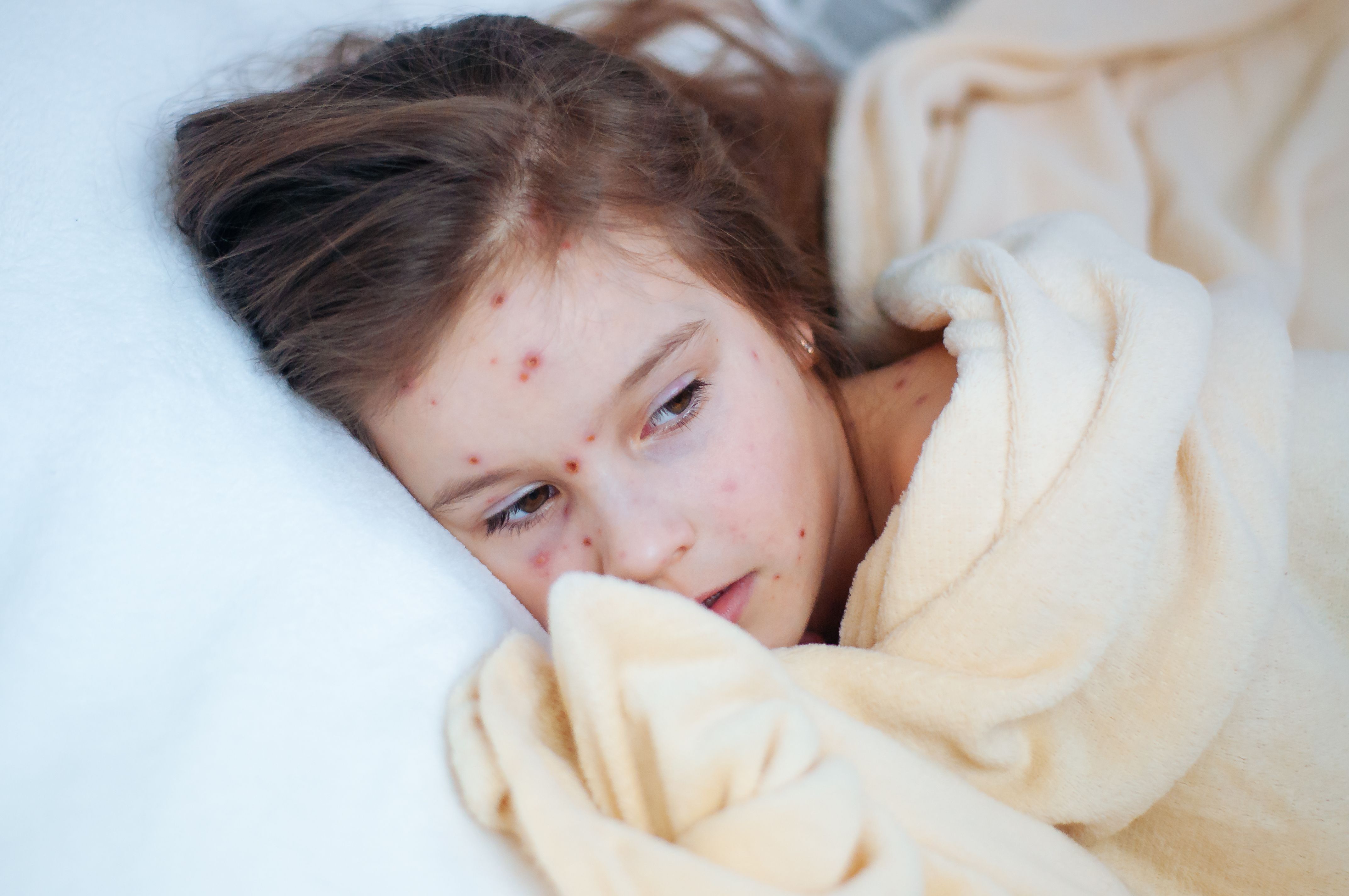Feeling Sick (Symptoms)
Measles is an acute viral illness. Measles typically begins with:
- High fever (may spike to more than 104°),
- Cough,
- Runny nose (coryza), and
- Red, watery eyes (conjunctivitis).
Measles is one of the most contagious disease known.
Measles is a virus that is spread when an infected person breathes, coughs or sneezes. The virus stays in the air and on surfaces for up to two hours after the infected person leaves the room.
Symptoms develop from 7 to 21 days after exposure. Infected people can spread the disease from 4 days before the rash starts and up to 4 days afterward.
Who Should Get the MMR Vaccine and When?
Children need 2 doses of the MMR vaccine.
-
First dose at 12-15 months Second dose at 4-6 years.
-
Some infants younger than 12 months should get a dose if they are travelling out of the country.
Adults also need the MMR vaccine.
Generally anyone born after 1956 should get at least one dose of the MMR vaccine, unless they can show that they have either been vaccinated or have had all three diseases.
Benefits of the MMR Vaccine.
Getting the MMR vaccine is much safer than getting measles. The MMR Vaccine:
- Saves lives.
- Prevents hospitalizations.
- Protects young children for whom the disease can be very serious.
- Keeps others safe, especially those at high risk. Persons at high risk include: babies younger than 1 year old, pregnant women who have not had the MMR vaccine, people with weak natural defenses, as those with chronic debilitating diseases, AIDS, cancer treatment, malnutrition.
If you think you or your child may need the MMR vaccine, please schedule an appointment with one of our providers by calling (402) 562-7500.
DID YOU KNOW?
- If you do not feel sick, you cannot spread the measles.
- Two doses of the MMR vaccine gives protection for life against the measles, even if you had the vaccine as a child. It does not require a booster.


